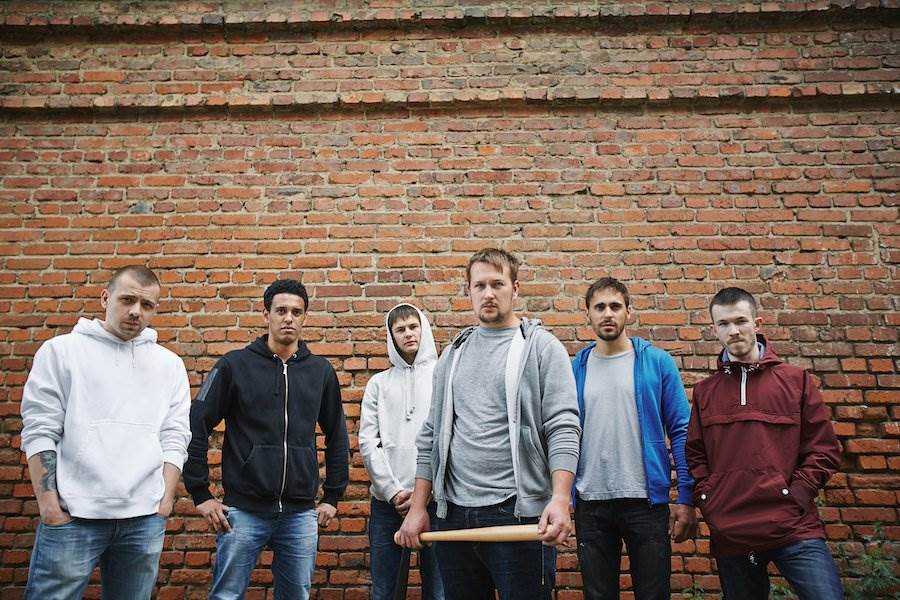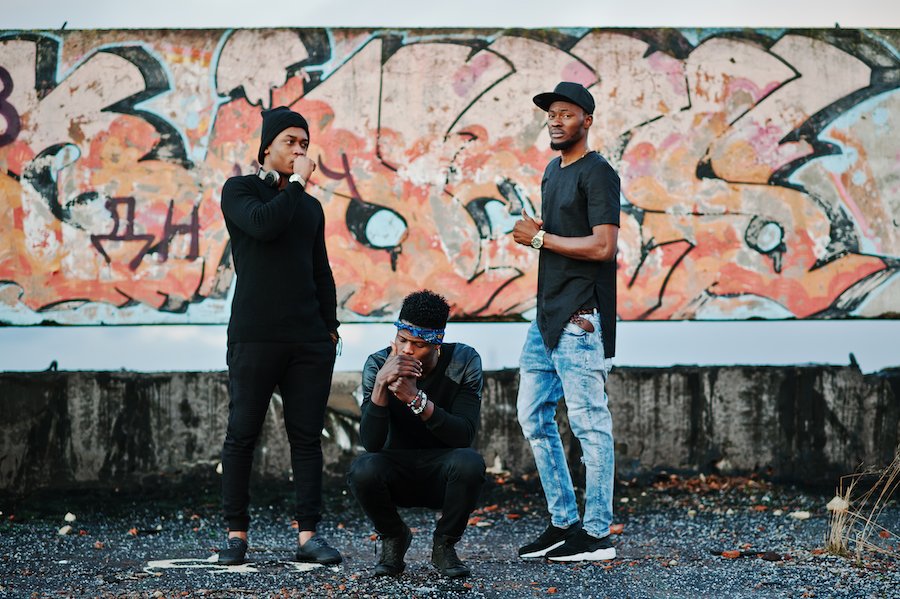Updated
CRS 18-23-101 defines criminal street gang as a group of at least three people whose purpose is to commit crimes and who have committed racketeering (CRS 18-17-104) or witness retaliation (CRS 18-8-706). It also counts as gang activity if the members conspired, attempted, or solicited to break the law, even if the intended crime never occurred.
In this article, our Colorado criminal defense attorneys discuss:
- 1. What are criminal street gangs in Colorado?
- 2. What are the penalties for witness retaliation?
- 3. What are the penalties for racketeering?
- 4. Is gang recruiting a crime?

Under CRS 18-23-101, criminal gangs must have three or more people.
1. What are criminal street gangs in Colorado?
Criminal street gang means any ongoing organization, association, or group of three or more persons, whether formal or informal:
- Which has as one of its primary objectives or activities the commission of one or more serious crimes; and
- Whose members individually or collectively engage in or have engaged in a pattern of criminal gang activity.1
A pattern of criminal gang activity is defined as two or more “predicate criminal acts” committed on separate occasions or by two or more gang members.2 And predicate criminal acts comprise either:
- Retaliation against a witness or crime victim; and/or
- Any conduct defined as racketeering activity3
Crimes that qualify as racketeering include:
- Murder (first degree and second degree)
- Manslaughter (first degree, second degree, and third degree)
- Assault
- Menacing
- Criminal extortion
- Kidnapping (first degree and second degree)
- Human trafficking (for involuntary servitude and sexual servitude)
- Arson (first degree, second degree, third degree, and fourth degree)
- Burglary (first degree and second degree)
- Robbery
- Aggravated robbery
- Aggravated robbery of controlled substances
- Motor vehicle theft
- Criminal mischief
- Computer crimes / cybercrime
- Forgery
- Second degree forgery
- Criminal possession of a forged instrument
- Criminal possession of forgery devices
- Trademark counterfeiting
- Felony charitable fraud
- Defrauding a secured creditor or debtor
- Money laundering
- Bribery in sports
- Criminal impersonation
- Credit card fraud
- Identity theft
- Sexual exploitation of children
- Pandering
- Pimping
- Bribery
- Attempt to influence a public servant
- Perjury (first degree and second degree)
- Intimidating a juror
- Tampering with a witness or victim
- Prohibited wiretapping
- Prohibited eavesdropping
- Professional gambling
- Possession of a gambling device or record
- Transmission of receipt of gambling information
- Maintaining gambling premises
- Possessing an illegal weapon or a dangerous weapon
- Illegal discharge of a firearm
- Possession, use, or removal of explosives or incendiary devices or the possession of components thereof
- Extortionate extension of credit
- Engaging in criminal usury
- Financing extortionate extensions of credit
- Financing criminal usury
- Collection of extensions of credit by extortionate means
- Possession or concealment of records of criminal usury
- IRS fraud
- Securities offenses
- Drug crimes4
In sum, there can be no gangs of just one or two people. And to qualify as a gang, the group has to have as its mission to break the law.
Note that law-breaking groups are still considered gangs even if they fail to carry out their intended crimes. Just the acts of trying or conspiring to carry out a crime qualify as a pattern of criminal gang activity.
In Denver, Colorado, the primary gangs are the Crips and the Bloods.

Colorado law defines gangs as groups that commit – or attempt to commit – racketeering or witness retaliation.
2. What are the penalties for witness retaliation?
Retaliation against witnesses or crime victims – or a member of their family or household – is a class 3 felony in Colorado. The punishment is four to 12 years in prison and a fine of $3,000 to $750,000.
Furthermore, the witness or crime victim may sue the defendant for damages suffered from the intimidation or retaliation. This could include medical expenses, property damage, pain and suffering, punitive damages, and attorney fees.
Retaliation consists of harassment or an act of harm or injury upon the victim’s person or property.5
3. What are the penalties for racketeering?
Racketeering is a class 2 felony in Colorado. The punishment is eight to 24 years in prison and a fine of $5,000 to $1 million. Defendants who are already convicted felons are ineligible to get a fine instead of prison.
In addition, defendants have to forfeit any money or property they gained through racketeering. Upon conviction, defendants may be liable for three times the value of any property damage or loss caused.6
4. Is gang recruiting a crime?
Yes, if the person being recruited is under 18 years old. Recruiting juveniles to join a criminal street gang (CRS 18-23-102) is a class 1 misdemeanor in Colorado punishable by six to 18 months in jail and a fine of $500 to $5,000.
Note that recruiting is a crime even if the recruited juvenile never joins the gang. And recruiting comprises all types of tactics, including inviting, soliciting, encouraging, coercing, forcing, intimidating, threatening, or causing bodily injury.7

Call our law firm for legal advice. We offer free consultations.
Legal References
- CRS 18-23-101. See also People v. Jackson, (2020) CO 75, 472 P.3d 553. See also Doubleday v. People, (2016) CO 3, 364 P.3d 193.
- CRS 18-23-101.
- CRS 18-23-101.
- CRS 18-17-104.
- CRS 18-8-706.
- CRS 18-17-104.
- CRS 18-23-102.
